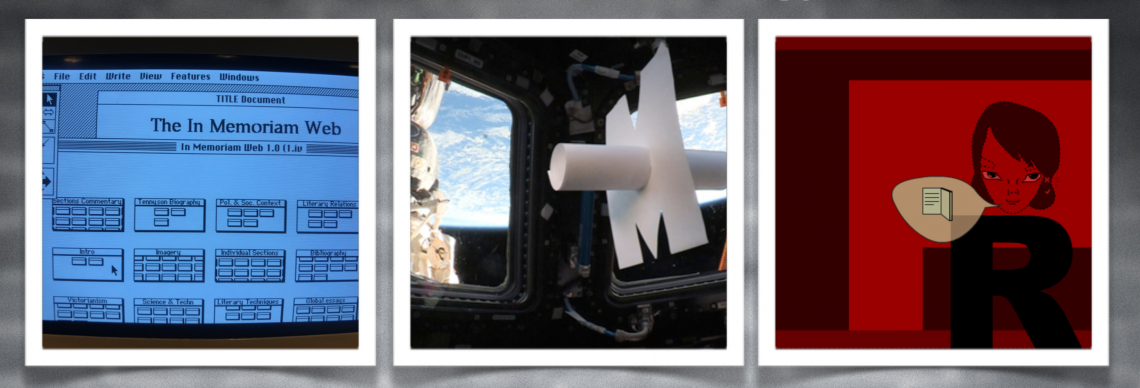-
Considerations for Week of March 4
It would seem that post anarchism, in its desire to reframe and rethink our ontological and epistemological practices within and outside of the academy, has the potential to be a powerful addition to literary studies on the whole and to studies of the experimental poetic tradition in particular.–Dani Spinosa This rationale sets the tone for Dani Spinosa’s Anarchist in the Academy: Machines and Free Readers in Experimental Poetry. Much of what she suggests in the book has been hinted to thus far in our class discussions, namely: e-lit’s focus on experimentation, its impetus toward collaborative and participatory practices, and an radical approach toward language, aesthetics, and theories. Here are some…
-
Considerations for This Week, 1-28-19
As you have probably guessed by now, the theme of today’s readings focuses on how we are humans make sense of, engage with, and come to experience texts, particularly texts that are participatory, interactive, and experiential. John Cayley’s writings chronicle years of making such work and arrives at the notion of grammalepsy. Likewise, N. Katherine Hayles continues to grapple with the notion of cognition and post humanism that formed the basis of her ground-breaking work from 1999, How We Became Post-Modern: Virtual Bodies in Cybernetics, Literature, and Informatics. Anna Nacher explores the post-digital condition that is changing the way humans understand the physical and digital worlds. Will Luers asks us to…
-
Considerations for This Week, 1-14-19
Here are topics we will explore today in relation to the book, Electronic Literature, by Scott Rettberg: The impact of the affordances of the medium and platform Structure=Meaning Genre (of course) References and Suggested Works Christopher Strachey, “Loveletters,” 1952 Theodore Lutz, “Stochastic Texts,” 1959 Alison Knowles and James Tenney, “House of Dust,” 1967 Nick Montfort, “Taroko Gorge,” 2009 Nick Montfort and Stephanie Strickland, “Sea and Spar Between,” 2012 Jorge Luis Borges, “The Garden of Forking Paths,” 1941 Mark Amerika, “Grammatron,” 1997 John Kusch, “Red Lily,” 1999 (Wayback Machine) Ana Maria Uribe, “Typoemas & Anipoemas,” 1997 Maria Mencia, “Birds Singing Other Birds Songs,” 2001 Tim Wright, “Online Caroline,” 2000-1 Special Resource…
-
Welcome to the Course
DTC 561 Studies in Technology & Culture is taught by Dr. Dene Grigar, Professor, WSUV; Director, Electronic Literature Lab; President, Electronic Literature Organization in Spring 2019 on Mondays 3:10-5:40 p.m. over Zoom, online, w/ face-to-face opportunities. The course focuses on theories, methods, and practices relating to born digital literature. Topics include history of the form and field, trends, and challenges. Hands-on experiences are planned.
